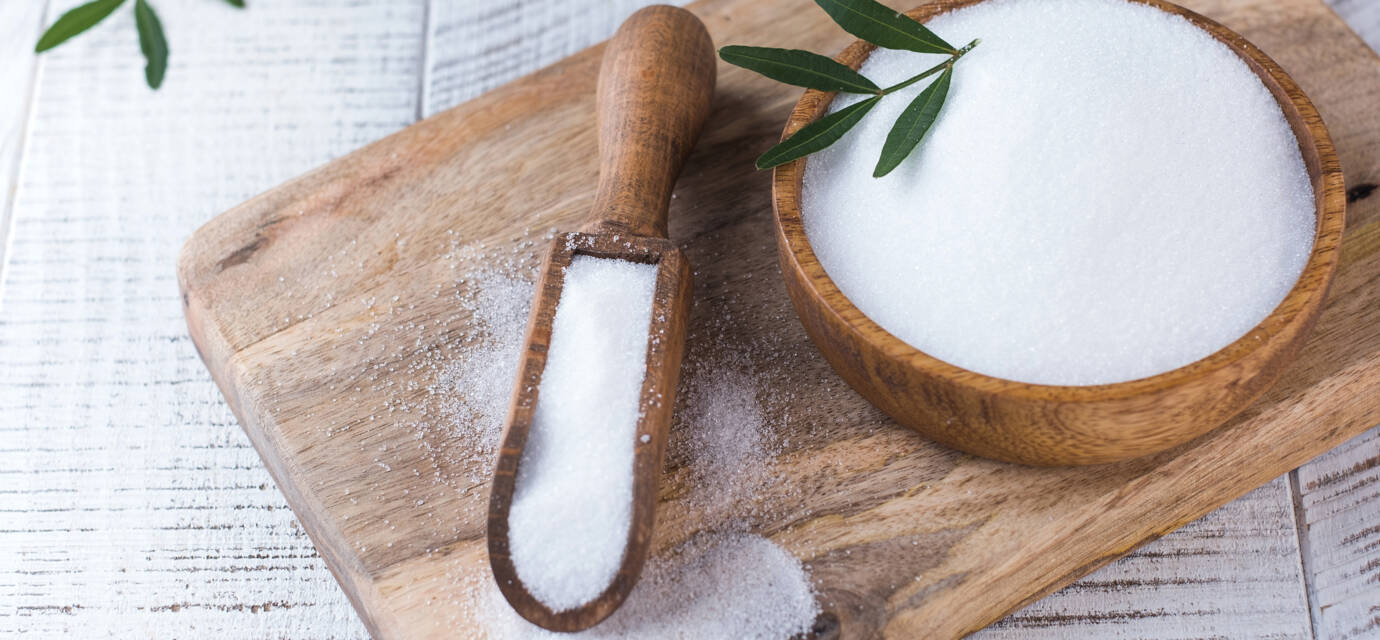Myths & facts about sweeteners!

Hermesetas – the clever way to sweeten
Myth 1 – Low-calorie sweeteners may cause cancer
This is unfortunately a false old belief, and after very extensive international testing and studies over a long period of time, there still haven’t been any scientifically correct or valid reasons found for backing up this kind of statement.
Fact 1
All low-calorie sweeteners approved for sale by the EU and by other countries all around the world are completely safe. Checking for any possible cancer risk for all food products and food ingredients is already undertaken during the extensive product authorisation process. In case any suspicion is raised, it is followed up on before the product is approved for sale. So far, no scientifically correct evidence has been found that low-calorie sweeteners could be carcinogenic. Regular food controls, and testing in various laboratory procedures ensure the safety of the consumer. This prejudice is very old, and extensive scientific testing around the world has confirmed that approved low-calorie sweeteners neither cause cancer nor harm health in any other way, when they are used in the normal recommended amounts.
Myth 2 – Low-calorie sweeteners are harmful to the body
This prejudice has also existed for many years, and it is believed by some people that low-calorie sweeteners, or their components, could harm the body in some way.
Fact 2
Low-calorie sweeteners such as Hermesetas are approved food additives and therefore belong to a group of products which are closely monitored by international and national government regulatory bodies. The regulations imposed by these government bodies on the products and their packaging, as well as on the product positioning and its labelling, are all very strict, and they ensure that there is no human safety risk or any risk of harm occurring to the body.
Hermesetas was one of the first brands of low-calorie sweetener tablets in the world and has been safely consumed since 1932. Today, low-calorie sweeteners are some of the most thoroughly tested and evaluated food products on the market. All of their most widely used ingredients (including saccharin, sucralose and cyclamate) have undergone several rounds of risk assessment by major international food authorities including the US Food and Drug Administration (FDA), the European Food Safety Authority (EFSA), and the Australian National Health and Medical Research Council (NHMRC). These authorities have confirmed the safety of low-calorie sweeteners and have consequently approved their use and widespread availability.
Hermesetas activates the sweetness receptors on the tongue, just like sugar, so you can taste sweetness but without the unwanted calories of sugar. During digestion, Hermesetas is broken down into its components or is excreted unchanged, and it does not interfere with the body’s metabolism in any way.
Myth 3 – Low-calorie sweeteners cause or produce hunger
Hermesetas does not make you feel hungry, but it does not make you feel full either. Many studies have shown that water sweetened with low-calorie sweetener has the same effect on the body as pure water. The body’s insulin level and blood sugar parameters all remain unchanged. The feeling of ravenous hunger does not occur as a result.
Myth 4 – Low-calorie sweeteners make you fat
If you are having food cravings, are low-calorie sweeteners really the cause?
Fact 4
Low-calorie sweeteners like Hermesetas have no or very low amounts of calories and therefore do not provide the body with energy, so it is impossible to gain weight from them. In contrast, there are several studies which show that the regular use of low-calorie sweeteners as a replacement for normal sugar can help to reduce weight!
Myth 5 – Pregnant women and children should avoid using low-calorie sweeteners
Low-calorie sweeteners are generally used for weight control and in different diets. Toddlers require a high-energy, balanced diet, so low-calorie sweeteners are not necessarily needed for toddlers up to 3 years of age and are therefore not recommended.
In the case of children with diabetes or who are overweight, however, low-calorie sweeteners can also be safely used by young children without hesitation on the advice of a doctor and considering their weight category. For older children, the lower body weight compared to adults must be considered.
For all food additives, the joint expert committee of the World Health Organisation and the World Food Organisation sets so-called ADI values (Acceptable Daily Intake), which serves as a guideline for the assessment of intake amounts. This guideline value is given in milligrams per kilogram of body weight.
The approved ADI value also applies to expectant and breastfeeding mothers. Normally, these acceptable daily amounts include a very large safety margin of at least 100 times any potential consumption risk level, and so even if they were to be be slightly exceeded, this is still generally harmless to health given this large safety factor of 100. If you still have concerns, discuss your diet plan during pregnancy with your doctor.
Calculate your individual ADI value here.